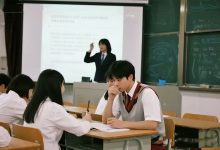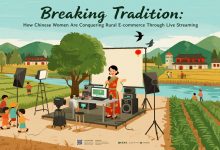The New Reality: PhD Holders Fighting for Civil Service Jobs
Something’s broken when the smartest people in the room are running away from what they trained for.
In China, PhD students from Tsinghua and Peking University – the Harvard and MIT of China – are ditching academic dreams for government positions. Not because they love bureaucracy. Because everything else feels like a trap.
The numbers tell the story. In Jiangxi Province’s 2025 recruitment, they selected 546 candidates from 52 top universities. Peking University led with 41 spots, followed by University of Science and Technology of China with 30, and Tsinghua with 24. Nearly 90% were graduate students.
This isn’t about passion for public service. This is about survival.
The Academic Dream Becomes a Nightmare
Chen Ying’s Wake-Up Call
Chen Ying thought she had it made.
Undergrad at a top-tier university. Master’s degree. PhD at Tsinghua. Multiple scholarships. Student council president. Perfect GPA.
Then she hit the job market and realized her resume was just another leaf in a forest of identical achievements.
During her civil service interview last winter, 500 PhD candidates applied. Only 100 made it to interviews – all from elite universities. Only 25 got hired.
Ten middle-aged officials stared her down across a conference table. Her voice shook despite months of interview prep. Years of debate competition experience barely saved her when they asked an obscure political theory question she hadn’t prepared for.
At 28, Chen Ying represents a generation that followed the rules perfectly and still got blindsided.
The “Publish or Perish” Reality
The academic world sold them a lie.
When Chen Ying started her PhD, senior students easily landed positions at top universities with tenure. By 2024, universities implemented “up or out” policies. Six years to get promoted to full professor or lose your job.
The pressure broke people. A 38-year-old associate professor at Nanjing Forestry University committed suicide in April 2024, reportedly from research grant stress.
Chen Ying watched the writing on the wall. She stopped applying to universities entirely.
Wu Feng’s Double Battle
Wu Feng, a Chinese literature PhD at Tsinghua, fought a war on two fronts for four months.
Left side of her desk: Civil service exam prep books, pages dog-eared, mistakes marked in red ink.
Right side: Academic papers and dissertation materials.
She studied for exams during the day. Revised papers at night. The city she wanted required candidates to graduate by December with no delays. One mistake meant starting over.
Some nights, lying in bed at 2 AM after finishing her thesis revisions, her mind still raced with practice test questions she’d gotten wrong.
The academic job market had already hit its breaking point by 2010, but nobody told the students.
The Math Doesn’t Add Up
Let’s be brutally honest about the numbers.
China produces thousands of PhDs annually. Universities create maybe dozens of tenure-track positions. The math never worked, but universities kept accepting students anyway.
Meanwhile, older professors delay retirement, blocking positions. The next wave of academic hiring might happen when professors retire en masse or universities expand for accreditation. But your graduation year might not align with that timing.
The Gender Factor
For women like Wu Feng, the calculation gets even more complex.
Corporate jobs? Maternity leave often means losing your position when you return.
Academic positions? The “up or out” pressure makes female professors afraid to have children early. But delayed childbearing brings its own risks.
Wu Feng calculated her odds: “60% chance I’m suited for civil service work.”
It became her Plan A by elimination, not choice.
When Smart People Make “Safe” Choices
Lin Jie’s Pattern Recognition
Lin Jie, a science PhD at Peking University, noticed the shift happening in real time.
Four years ago: 1 out of 10 PhD graduates in his department chose civil service.
This year: 5 out of 10.
His lab mate spent a month traveling between cities for civil service exams, barely finishing his dissertation. Their advisor used him as a cautionary tale.
But Lin Jie understands the logic. He follows a principle: “All models are wrong, but some are useful.” The academic model stopped being useful.
The Geographic Retreat
Even elite university graduates are lowering their sights.
Wu Feng originally targeted first-tier cities like Beijing and Shanghai. The competition was too fierce. She pivoted to a smaller city to “guarantee landing a position.”
The days of elite universities guaranteeing premium positions are over. Even in second-tier cities, requirements keep rising.
The Real Solutions Nobody’s Talking About
For Students: Diversify Early
Stop putting all your eggs in one basket.
Build skills outside your academic specialty. Learn data analysis, project management, or policy writing. Start networking in government and industry during your PhD, not after.
Most importantly: Make peace with the fact that your PhD might be a detour, not a destination.
For Universities: Stop the Ponzi Scheme
Universities need to be honest about job prospects before accepting students.
Limit PhD admissions to match actual job availability. Create industry partnerships that offer real career paths. Reform the “up or out” system that treats humans like disposable resources.
Academic institutions created this mess. They need to fix it.
For Society: Redefine Success
We need to stop treating academic careers as the only “worthy” path for brilliant minds.
Government work, consulting, industry research – these are valuable contributions, not consolation prizes. The stigma around leaving academia hurts everyone.
The Hidden Costs
Lin Jie’s Setback
Lin Jie passed all his exams and interviews. Then his research paper got rejected in April for “complex English expression affecting readability.”
Delayed graduation meant losing his civil service position.
The organization called politely: “We welcome you to apply again next year.”
He stood by his lab window, watching students walk by with books, feeling stuck in limbo.
At 30, he’s learned that even perfect preparation can’t predict policy changes or paper reviews.
Chen Ying’s Last-Minute Curveball
Chen Ying thought landing the offer meant she was safe.
In June, she got a call: Policy changes meant her provincial capital position disappeared. They might relocate her to a surrounding city instead.
She cried – not from disappointment, but from powerlessness. She’d done everything right. Still got blindsided by forces beyond her control.
Her PhD thesis still needs approval by December, or the offer becomes void anyway.
“Maybe Tsinghua was the highlight of my life,” she says. The brutal honesty of someone who played by the rules and lost anyway.
Wu Feng’s Identity Crisis
Wu Feng cut off her waist-length hair when she started her government job.
She packed away her traditional Chinese dresses and qipao, folding them carefully into the bottom of her closet. The long hair had been her signature – “obviously a Chinese literature student,” people would say.
Now she’s reshaping herself to fit government expectations. The physical transformation took 20 minutes. Mentally moving Chinese literature from “priority” to “hobby” is taking much longer.
She lives in government housing now, overlooking the ocean. The pace is slower. Her love for literature persists, but it’s become private.
Her biggest hope? “Finding meaning in the work, even if it’s just building a road for a village – at least that road actually exists.”
The Bigger Picture
This isn’t just about China. It’s about what happens when elite education systems produce graduates for jobs that don’t exist.
The PhD oversupply problem exists in many countries. The difference is China’s civil service expansion provides an alternative that doesn’t exist elsewhere.
American and European PhD students face similar academic job shortages but without equivalent government opportunities. They end up in postdoc limbo or leaving academia entirely with fewer safety nets.
What Actually Works
Individual Strategy
Stop waiting for the system to fix itself.
Treat your PhD as one skillset among many. Build professional networks outside academia early. Consider government work, consulting, or industry research as primary goals, not backup plans.
Most importantly: your worth isn’t determined by whether you become a professor.
Systemic Changes
Universities need market accountability. Tie PhD program funding to graduate employment outcomes. Require honest disclosure of job placement rates before students enroll.
Government positions shouldn’t be the only alternative to academic failure. Create more pathways between education, industry, and public service.
Cultural Shift
Success means different things to different people.
Wu Feng found meaning in the possibility of building infrastructure that helps real communities. Chen Ying learned to separate her self-worth from external validation. Lin Jie practices the resilience of ancient poets who faced setbacks with grace.
These aren’t consolation prizes. They’re different definitions of a life well-lived.
The Bottom Line
Elite education promised these students the world. Instead, it delivered a narrow set of options in an overcrowded field.
The smartest response isn’t to keep playing a rigged game. It’s to change the rules or find a different game entirely.
Wu Feng, Chen Ying, and Lin Jie aren’t giving up on their dreams. They’re expanding their definition of what dreams can look like.
Sometimes the most radical thing you can do is choose stability over prestige, community service over academic glory, and practical impact over theoretical achievement.
The future belongs to people flexible enough to adapt when their original plans don’t work out. These PhD students are learning that lesson the hard way, but they’re learning it.
Their stories aren’t about failure. They’re about resilience in a system that wasn’t designed for their success.
And maybe that’s the most valuable education of all.








